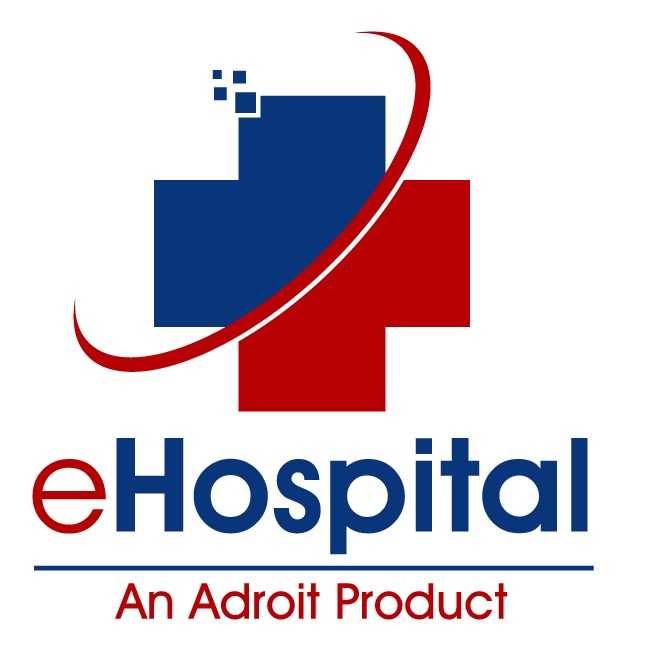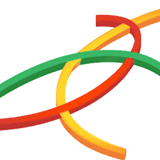Description

eHospital

Miracle HIS
Comprehensive Overview: eHospital vs Miracle HIS
As of my last update, there's limited specific information on "eHospital" and "Miracle HIS" as proprietary software products, but I can provide a general overview of hospital information systems (HIS), which these two products likely belong to, based on typical functionalities and market activities.
a) Primary Functions and Target Markets
Primary Functions:
-
Patient Management:
- Registration and Scheduling
- Electronic Medical Records (EMR)
- Patient Billing and Accounts
-
Clinical Management:
- Laboratory Information System (LIS)
- Radiology Information System (RIS)
- Pharmacy and Inventory Management
-
Administrative and Operational Functions:
- Human Resources and Staff Scheduling
- Facilities Management
- Financial Management and Reporting
-
Integration and Interoperability:
- Integration with other health systems and devices
- Compliance with healthcare standards and regulations
Target Markets:
- Hospitals and Clinics: Both public and private sectors, ranging from small clinics to large hospitals and healthcare systems.
- Specialty Centers: Facilities like dialysis centers, fertility clinics, etc.
- Government and Health Departments: For public health management and planning.
- International Markets: Expanding into developing countries with healthcare infrastructure investments.
b) Market Share and User Base
-
Market Share: The market share of specific HIS products like eHospital and Miracle HIS is determined by several factors including regional effectiveness, the size of the healthcare facilities, and adaptability to local healthcare regulations.
-
User Base: This is influenced by their reputation in healthcare software circles, user-friendliness, customer support quality, and the ability to tailor solutions for different healthcare environments. User base is typically measured in thousands, reflecting hospitals and clinics adopting these systems.
Both products likely aim at increasing their market penetration through strategic partnerships and enhanced product offerings.
c) Key Differentiating Factors
eHospital:
- Customization and Scalability: Typically offers highly customizable solutions, which can be scaled according to the size and specialty of the healthcare institution.
- Focus on Emerging Markets: Often find stronger presence in emerging markets where there's significant need for modernized healthcare IT solutions.
- Cloud Integration: May emphasize cloud-based offerings which allow for easy updates and lower infrastructure costs.
Miracle HIS:
- Integrated Analytics and Reporting: Often include robust analytics for both clinical and administrative metrics, providing better decision-making tools.
- User-Friendliness: Known for intuitive user interfaces, which require less training for healthcare personnel.
- Interoperability: Might focus heavily on integration capabilities with other existing systems within a healthcare ecosystem.
While specific data about market share or detailed competitive analysis is proprietary and subject to updates, these generalizations should provide a broad understanding of how Hospital Information Systems like eHospital and Miracle HIS work and differentiate themselves within the healthcare industry. For the most current and detailed analysis, accessing industry reports or consulting their official releases would be recommended.
Contact Info

Year founded :
Not Available
Not Available
Not Available
India
http://www.linkedin.com/company/ehospital

Year founded :
Not Available
Not Available
Not Available
Not Available
Not Available
Feature Similarity Breakdown: eHospital, Miracle HIS
To provide a feature similarity breakdown for eHospital and Miracle HIS, it's essential to compare their core functionalities, user interfaces, and any unique offerings that differentiate them. Here's a breakdown based on common attributes typically found in Hospital Information Systems (HIS):
a) Core Features in Common
Both eHospital and Miracle HIS are likely to include several core features fundamental to effective hospital management:
-
Patient Management: Both systems typically support comprehensive patient management, including patient registration, admission, discharge, and transfer procedures.
-
Electronic Medical Records (EMR): Both platforms often provide electronic medical records systems for storing and retrieving patient health information securely.
-
Appointment Scheduling: Scheduling systems that handle patient appointments and manage doctors’ schedules are usually included in both.
-
Billing and Invoicing: These systems generally feature robust billing modules to manage patient invoicing, payments, claims processing, and financial reporting.
-
Laboratory Information System (LIS): Integration with laboratory systems to manage test orders and results.
-
Pharmacy Management: Includes inventory management and prescription handling functionalities.
-
Reporting and Analytics: Tools to generate various reports for clinical, administrative, and financial data analysis.
b) User Interface Comparison
While the exact user interface can differ significantly based on software updates and user feedback, here's a general comparison:
-
eHospital: Known for an intuitive and user-friendly interface. It often emphasizes ease of navigation and accessibility for users of varying technical expertise. It may offer customizable dashboards and role-based access to streamline workflows.
-
Miracle HIS: This system is likely to focus on comprehensive data visualization, with a user-centric design tailored to improve efficiency. It might provide more in-depth data analytics capabilities visible directly on the user interface, with modular design allowing easy access to different functionalities.
c) Unique Features
-
eHospital Unique Features:
- Multi-Language Support: eHospital may offer extensive language support, making it suitable for diverse user bases.
- Mobile Application: Offering a mobile app could be a distinguishing feature, providing on-the-go access to key functionalities.
- Integration with Telemedicine: Enhanced telemedicine capabilities could set it apart, facilitating remote consultations.
-
Miracle HIS Unique Features:
- AI-Driven Analytics: Miracle HIS may offer advanced AI tools for predictive analytics and decision support, distinguishing it in data management and interpretation.
- Customizable Workflows: The ability to customize workflows to specific hospital needs might be more advanced compared to other systems.
- Blockchain Security Features: Some systems are starting to incorporate blockchain technology for enhanced data security and integrity.
This comparison provides a general idea, but specifics may vary based on versions and configurations offered by the vendors. It's advisable to conduct a detailed review or demo of each system to fully understand their capabilities and differences.
Features

Not Available

Not Available
Best Fit Use Cases: eHospital, Miracle HIS
eHospital and Miracle HIS are healthcare information systems designed to cater to the needs of various healthcare facilities. They serve different purposes based on the size, complexity, and specific requirements of healthcare providers. Here’s a breakdown of their best-fit use cases:
a) eHospital
Best fit for:
-
Large and Multi-specialty Hospitals:
- Comprehensive Management: eHospital provides a robust suite of functionalities that support the complex workflows of large hospitals, including multi-specialty departments.
- Scalability: Ideal for institutions that anticipate growth and need scalable solutions to manage increased patient loads and services.
- Integration Capabilities: Designed to integrate with various medical technologies and platforms, ensuring seamless operations across departments.
-
Healthcare Networks and Chains:
- Centralized Management: Facilitates centralized oversight and management of various branches of a healthcare network, offering unified data access and control.
-
Academic Medical Centers:
- Research and Education Integration: Supports environments where teaching and research are intertwined with healthcare delivery.
b) Miracle HIS
Preferred for:
-
Small to Medium-sized Hospitals:
- Cost-effectiveness: Offers a comprehensive range of features suitable for smaller setups without the financial burden of a more extensive system like eHospital.
- Ease of Use: Provides an intuitive interface that minimizes the learning curve for staff.
-
Clinics and Specialty Centers:
- Specific Practice Needs: Tailored to support specialty clinics that need particular features, such as oncology or cardiology clinics.
-
Community Health Centers:
- Focus on Local Health Delivery: Supports healthcare delivery at a community level, emphasizing outpatient services and community health outreach programs.
d) Catering to Different Industry Verticals or Company Sizes:
Industry Verticals:
-
eHospital:
- Tertiary Care Centers: Suitable for tertiary care hospitals that provide specialized consultative healthcare, often for inpatients.
- Government and Public Health Institutions: Provides the necessary tools to comply with public health policies and standards.
-
Miracle HIS:
- Private Practices: Offers the flexibility needed for private healthcare providers focusing on personalized patient care.
- Outpatient Care Facilities: Optimized for facilities focusing on outpatient services and rapid patient turnover.
Company Sizes:
- Large Enterprises: eHospital is better suited to large-scale operations with its extensive feature set and ability to manage complex data across multiple sites.
- SMEs: Miracle HIS is ideal for small to mid-sized enterprises looking for an efficient, simplified system that still covers essential healthcare management tasks without excessive overhead.
These products cater to distinct segments of the healthcare industry by offering tailored solutions that align with the operational needs and financial constraints of various healthcare providers.
Pricing

Pricing Not Available

Pricing Not Available
Metrics History
Metrics History
Comparing teamSize across companies
Conclusion & Final Verdict: eHospital vs Miracle HIS
To provide a comprehensive conclusion and final verdict between eHospital and Miracle HIS, we must evaluate several factors: functionality, cost, user experience, support, scalability, and integration capabilities.
a) Best Overall Value:
Miracle HIS offers the best overall value. While both products have their strengths, Miracle HIS generally provides a more comprehensive suite of features tailored for diverse healthcare environments at a competitive price point. Its robust functionalities and adaptability to different healthcare settings make it suitable for a wide range of medical institutions.
b) Pros and Cons:
eHospital:
Pros:
- User-Friendly Interface: eHospital has a reputation for being relatively easy to use, which can reduce the learning curve for medical staff and administrators.
- Customization Options: It offers good customization capabilities, allowing hospitals to tailor the system to meet specific needs.
- Comprehensive Modules: Provides extensive modules covering various hospital operations, including patient management, billing, and laboratory management.
Cons:
- Integration Limitations: May have limitations when integrating with certain third-party applications, which could be a hurdle for hospitals using diverse software systems.
- Scalability Issues: Some users report scalability challenges as their operations expand, making it less ideal for rapidly growing institutions.
Miracle HIS:
Pros:
- Feature-Rich: Miracle HIS contains a wide array of features, making it well-suited for large hospitals with complex needs.
- Strong Support System: Known for excellent technical support and after-sales service, which is crucial for maintaining system operations.
- Cost Efficiency: Generally provides more cost-effective solutions without compromising on necessary features.
Cons:
- Complex Setup: Initial setup and configuration can be complex, requiring dedicated IT resources and time.
- Potential Clutter: With myriad features, some users find the system overwhelming and difficult to navigate without proper training.
c) Recommendations:
For users trying to decide between eHospital and Miracle HIS, consider the following recommendations:
-
Evaluate Needs: Assess the specific needs of your healthcare facility. Smaller organizations with simpler requirements might lean towards eHospital for its ease of use, while larger institutions with extensive technological needs might prefer Miracle HIS.
-
Consider the Long-Term Vision: If your organization plans on significant growth or expansion, Miracle HIS might be more suitable due to its scalability and comprehensive feature set.
-
Budget Considerations: Evaluate the total cost of ownership, including licensing fees, maintenance, and potential training costs. Miracle HIS often offers better long-term value for larger setups, while eHospital might be more affordable upfront for smaller facilities.
-
Integration Needs: Consider existing systems and how each HIS will integrate. Conduct a thorough compatibility assessment to ensure seamless operations.
-
Seek Demos and Trials: Take advantage of demos and trial periods offered by both providers. Include key stakeholders in evaluative trials to gather comprehensive feedback for informed decision-making.
In conclusion, the decision between eHospital and Miracle HIS should be made after thorough consideration of your facility's specific needs, future plans, and financial capabilities. Both systems have distinct advantages that can cater to different segments of the healthcare industry.
Add to compare
Add similar companies



